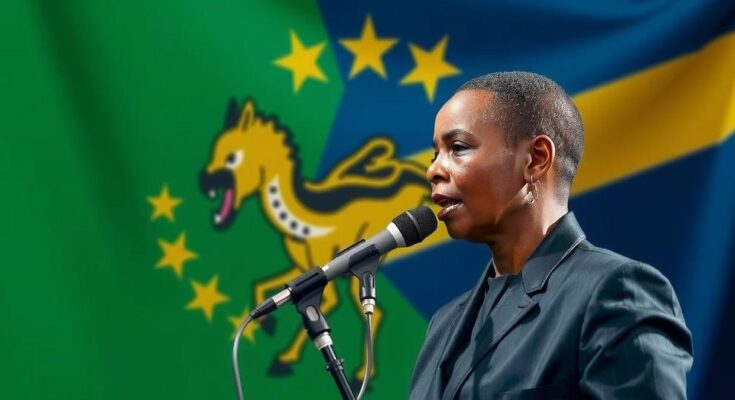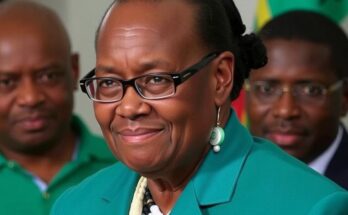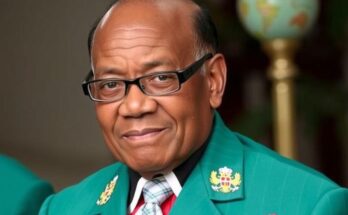Botswana has witnessed a significant political upheaval as voters have rejected the Botswana Democratic Party after 58 years in power. Preliminary results reveal that the party has secured only one parliamentary seat, while the Umbrella for Democratic Change, led by Duma Boko, has gained 20 seats and is projected to secure a majority. Boko is expected to become the next president as the BDP’s decline has been attributed to poor economic performance and high unemployment.
In a historic political shift, voters in Botswana have decisively opted against the Botswana Democratic Party (BDP), which has ruled the nation for nearly six decades. Preliminary results indicate that the BDP, in power since Botswana’s independence in 1966, has secured a mere one parliamentary seat as of early Friday morning. The Umbrella for Democratic Change (UDC), under the leadership of human rights advocate Duma Boko, appears to have won 20 seats and is expected to surpass the necessary 31 seats to secure a majority in parliament. Consequently, Mr. Boko is favored to be appointed the next president when parliament convenes. This marks his third attempt at the presidency, and he has called upon his supporters to remain vigilant and disciplined during this transition. The BDP, once a dominant force, has seen its standing erode due to sluggish economic performance and significant unemployment rates. Mokgweetsi Masisi, the outgoing president who has served since 2018, championed a campaign that promised change but failed to persuade the electorate of the party’s capacity to effectuate the needed improvements in the nation. As Botswana enters a new chapter in its political landscape, the election signifies a pivotal moment, reflecting the citizens’ desire for change following decades of BDP governance.
Botswana has experienced a remarkable journey since its independence from British colonial rule in 1966. The Botswana Democratic Party (BDP) has been the sole governing entity, priding itself on maintaining a stable economy, largely driven by the diamond industry, and fostering democratic principles. However, the persistent issues of economic growth stagnation and high unemployment rates have increasingly raised concerns among the populace. Over the years, opposition parties have worked to challenge the BDP’s dominance, but it is the recent elections that have culminated in a significant political realignment, indicating a potential shift in governance and public sentiment.
The recent elections in Botswana signify an unprecedented shift in the political landscape, with the Umbrella for Democratic Change poised to take over governance after nearly sixty years of BDP rule. Duma Boko’s anticipated ascension to the presidency is a clear indication that the electorate seeks new leadership amidst ongoing economic challenges. The results exemplify the populace’s demand for change and a re-evaluation of the policies and governance strategies that have characterized the BDP’s lengthy tenure.
Original Source: www.bbc.com




